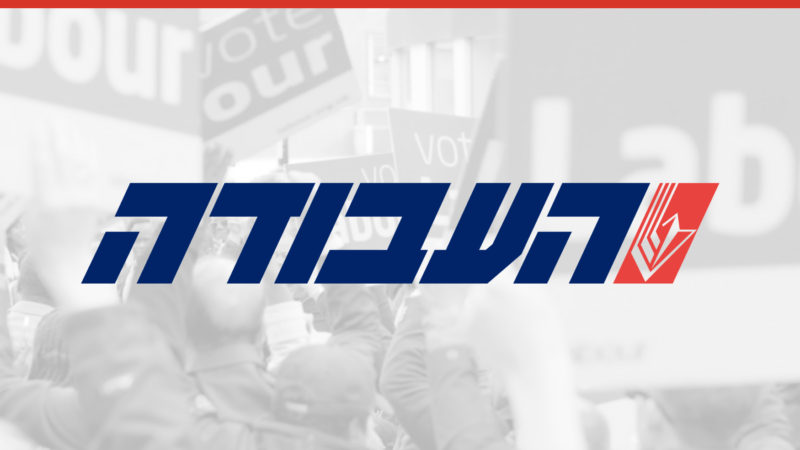
Israel is on its third general election in under a year, as embattled right-wing Prime Minister Benjamin Netanyahu attempts to break a political impasse. One that keeps seeing him just miss out on a majority in the 120-seat Knesset – the country’s parliament.
Nominations for candidates in the 2020 election close at midnight on January 15th. The run-up to this deadline always sees a frenzy of mergers and splits as parties seek to stay above the 3.25% threshold that lets them into the Knesset under Israel’s proportional representation system. 3.25% gets you four members of the Knesset (MKs) – 3.24% gets you none.
For decades, Israel has had two political parties covering broadly the same spectrum that Labour covers in the UK, with both of them affiliated to the Socialist International. The centre-left Labor Party was dominant until 1977, played the key role in founding the state, and has deep institutional links with the powerful Israeli TUC, Histadrut.
But its reputation has never recovered from the disillusionment Israelis felt when the hope of the Oslo peace process degenerated into the terror attacks of the second intifada. Its decline accelerated with the disastrous choice of Avi Gabbay, a tech entrepreneur with right-wing roots, for leader in 2017.
The smaller, more left-wing Meretz party is now the parliamentary voice of the peace movement. There has often been speculation about a potential merger, but it has never been achieved until this year. Sadly, it’s the product not of ideological unity but of blind electoral panic.
In September’s general election, both parties tried to merge with new allies to increase their appeal. Labor merged with Gesher, a centrist party, and brought back its old leader from 2005-2007, Amir Peretz, whose Moroccan roots appeal to Jews of Middle Eastern and North African origin who would usually vote for the Netanyahu’s Likud party.
Meretz pulled off a double merger to partner in a new ‘Democratic Union’ with former Labor Prime Minister Ehud Barak, Israel’s most decorated war hero, and the Green Party now fronted by another ex-Labor MK, Stav Shaffir.
Both new coalitions were dismal failures: Labor-Gesher got 4.8% of the vote and only six MKs, while the Democratic Union achieved 4.3% and five representatives. They were both squeezed to almost nothing by a two horse race between Netanyahu and a new centre block – Blue and White – led by ex-Israel defence forces chief of general staff, Benny Gantz.
Gantz had long been portrayed as the white knight whose entry into politics was expected to rejuvenate Labor. But instead he chose a different political party, and is helping to kill Labor through tactical voting in an attempt to make his party the largest. Hence the panicked merger between Labor and Meretz, announced on January 13th by Peretz and Nitzan Horowitz, leader of Meretz.
The harsh maths is that together the two parties might get fewer aggregate votes than separately, as they stand to lose voters who are put off by one or other partner. But they should squeak back into the Knesset. Separately they may have got more total votes, but they also risked neither hitting the threshold and getting any seats.
The main victim of this is Stav Shaffir, still only 34, the leader of the Israeli version of the ‘occupy’ social justice movement in 2011, and since then the rising star of the Israeli left. Her tiny Green Party had no leverage in the merger negotiations; Labor view her as a traitor for leaving them last year and Meretz aren’t going to prioritise her in the seat distribution over their own MKs.
Consequently, she’s got no place on the combined candidate list. Like a political version of the Roman myth in which Saturn devours his children, Israel’s left are destroying their most capable future leader.
The country’s left – the force that created the state and saw it through the tribulations of its early years – could still be the fourth largest party in the Knesset after March. But it has been humbled into a messy and weakening merger of last resort in order to survive.




More from LabourList
Welfare vote: ‘Here are the failures it reveals – and three faint silver linings’
Welfare vote: Which Labour MPs voted against bill or backed new amendment?
‘Welfare reforms still mean a climate of fear. Changes are too little, too late’